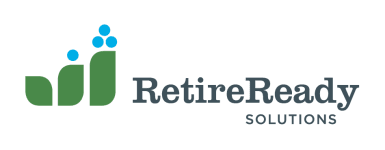Ask Great Questions
How would your business grow if you could deepen your relationships with clients? If your clients were more engaged in the financial planning process, how would that improve the outcome for them and for you? What might be the impact if potential clients found you more likable and easier to relate to? What about asking the right questions?
Think about the implications of your answers. Now what if I told you there was a way to better engage your clients, build deeper relationships, become more likeable and that it was free and easy to do? No gimmicks, no increased overhead just learning and practicing new skills?
Are you interested?
If I have got your attention and you are interested in reading the rest of the article then you have just experienced the power of questions! Questions have a unique power and learning to be a better question asker can have a big impact on your personal and professional relationships. This month’s issue of the Harvard Business Review relates some new research about the power of questions, research that you can put into practice right now in your business and relationships.
People have long understood the power of questions. In his 1936 book, How to Win Friends and Influence People, Dale Carnegie tells readers to “be a good listener.” Voltaire said “judge a man by his questions rather than by his answers.” The HBR article is interesting in that it puts forth research to back up what most of us know experientially to be true. Below are some highlights of the article.
Asking questions makes you more likable
Researchers studied speed dating participants and found that those who asked just one additional question were more likely to get a second date. Would you ask one or two additional questions if it made you more likely to get a second meeting with a potential client?
Follow-up questions have a special effectiveness
Researchers identified four basic types of questions: introductory questions, reciprocal or mirror questions, questions that change the topic, and follow-up questions. Researchers found that follow-up questions were the most powerful because “they signal to your conversation partner that you are listening, care, and want to know more. People interacting with a partner who asks lots of follow-up questions tend to feel respected and heard.” If asking follow-up questions of your clients made them feel heard, understood, and respected, how would that impact your relationship with them?
Questions have a sequence risk
Researchers found that in tense encounters, asking tough questions first made the other person more forthcoming later in the conversation. However, when it came to building relationships, starting the conversation with less sensitive questions works better. Apparently the effect on building trust and likability is so strongly linked to the sequence of starting a conversation with shallower questions that researcher have even developed their own tool based on the results. In your engagements with clients, what is the goal of a conversation: building the relationship or tackling sensitive issues? Picking the right sequence of questions can make a difference.
Questions asked casually invite more openness
Researchers found that people were more open and forthcoming with information when the questions were asked in a casual tone rather than an official tone. I think we all feel this to be true but it is interesting to see the research that backs it up. Of course, there is a risk of being too casual but avoiding sounding overly formal seems to improve people’s willingness to share information.
Group dynamics can affect people’s responsiveness
People in groups tend to follow cues from other group members. If one member of the group is closed off to answering questions, this can negatively affect the whole group. Conversely an open, forthcoming person can positively affect a group. For an advisor, this can come into play when working with couples. Pay attention to the conversation dynamics. Is one person closed off to the conversation? They may influence the other person to be more reticent as well.
Becoming a better question asker (and listener!) is something we can all aim for and work toward; something that will have a positive impact in many areas such as deepening client relationships and winning new clients…not to mention having a positive impact in your personal life. Best of all it is something you can put into practice today!
Need help coming up with some good questions? Check out this handy list of 40 open-ended questions!

Free Download
Forty Powerful Questions to Engage and Motivate Your Clients
Looking for help asking good questions to engage your clients?
Download our list of 40 great questions!
Blog Link References:
https://hbr.org/2018/05/the-surprising-power-of-questions


